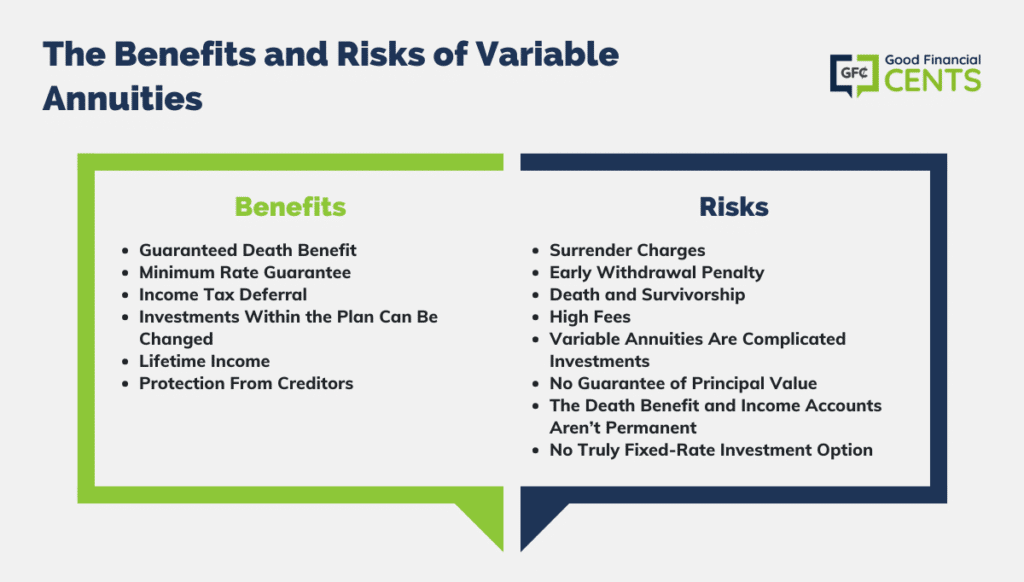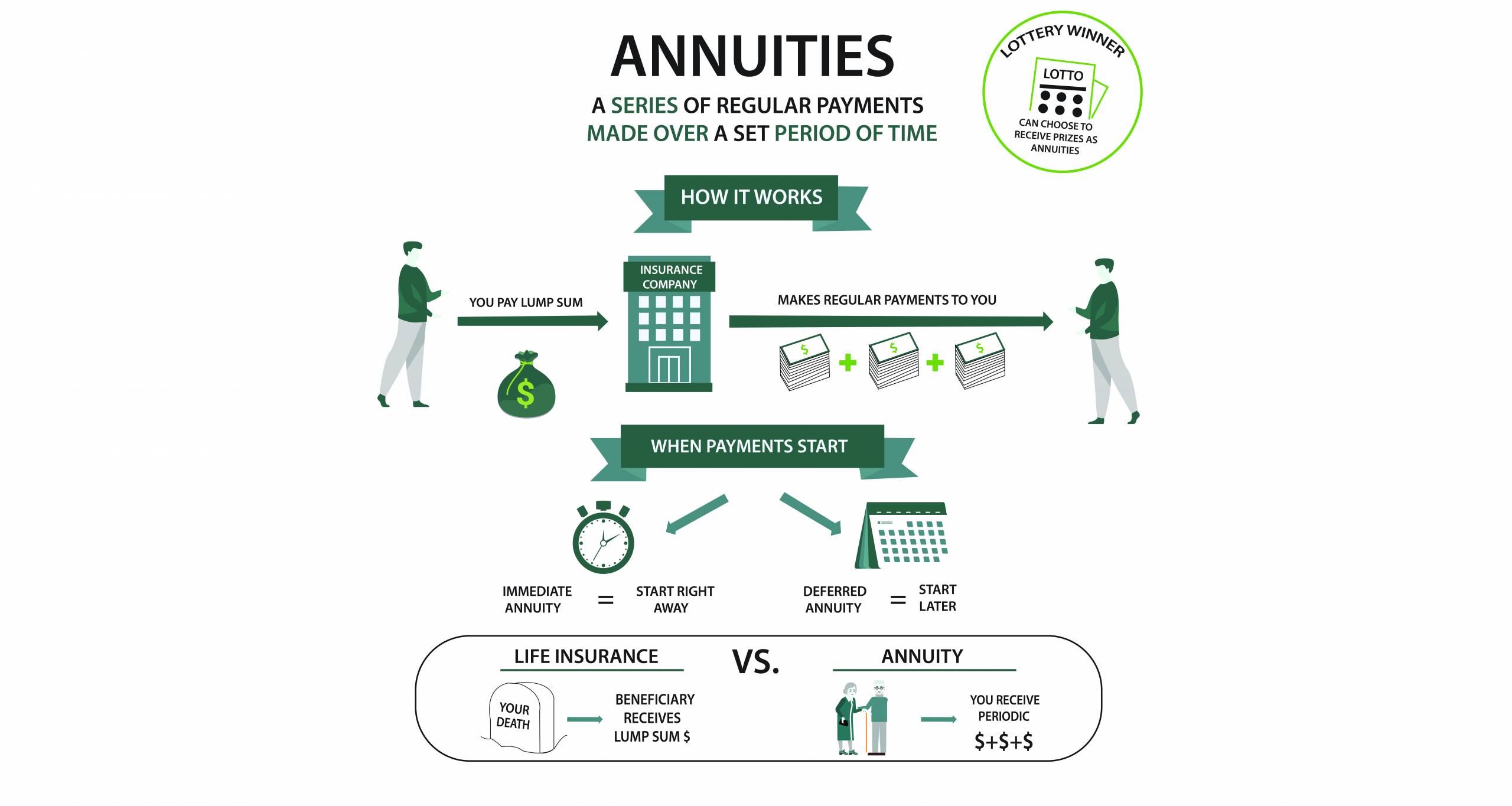Featured
Table of Contents
There are three types of annuities: fixed, variable and indexed. With a fixed annuity, the insurance firm ensures both the price of return (the rate of interest rate) and the payment to the financier.
With a deferred fixed annuity, the insurer agrees to pay you no less than a defined rate of rate of interest during the time that your account is expanding. With a prompt set annuityor when you "annuitize" your deferred annuityyou receive an established fixed quantity of money, generally on a month-to-month basis (similar to a pension).
While a variable annuity has the benefit of tax-deferred development, its annual expenses are most likely to be a lot greater than the costs of a regular common fund. And, unlike a fixed annuity, variable annuities do not supply any kind of guarantee that you'll gain a return on your investment. Rather, there's a danger that you can in fact lose money.
Decoding How Investment Plans Work Everything You Need to Know About Financial Strategies What Is Indexed Annuity Vs Fixed Annuity? Benefits of Choosing the Right Financial Plan Why Choosing the Right Financial Strategy Is Worth Considering How to Compare Different Investment Plans: Explained in Detail Key Differences Between Different Financial Strategies Understanding the Key Features of Long-Term Investments Who Should Consider What Is A Variable Annuity Vs A Fixed Annuity? Tips for Choosing the Best Investment Strategy FAQs About Planning Your Financial Future Common Mistakes to Avoid When Choosing Pros And Cons Of Fixed Annuity And Variable Annuity Financial Planning Simplified: Understanding Your Options A Beginner’s Guide to Fixed Vs Variable Annuity Pros Cons A Closer Look at How to Build a Retirement Plan
Because of the intricacy of variable annuities, they're a leading resource of investor complaints to FINRA. Prior to acquiring a variable annuity, carefully reviewed the annuity's syllabus, and ask the person marketing the annuity to describe all of the product's features, cyclists, costs and constraints. You ought to also recognize just how your broker is being made up, consisting of whether they're obtaining a compensation and, if so, exactly how a lot.
Indexed annuities are complex economic tools that have qualities of both fixed and variable annuities. Indexed annuities normally provide a minimum guaranteed rates of interest incorporated with an interest rate linked to a market index. Several indexed annuities are tied to wide, popular indexes like the S&P 500 Index. Some usage other indexes, consisting of those that stand for various other segments of the market.
Understanding the features of an indexed annuity can be confusing. There are a number of indexing techniques firms make use of to compute gains and, due to the selection and intricacy of the techniques made use of to credit report rate of interest, it's tough to compare one indexed annuity to one more. Indexed annuities are typically classified as one of the following 2 kinds: EIAs supply a guaranteed minimum passion rate (usually at the very least 87.5 percent of the costs paid at 1 to 3 percent rate of interest), along with an additional rate of interest price connected to the efficiency of several market index.

With variable annuities, you can spend in a variety of securities including stock and bond funds. Stock market efficiency figures out the annuity's worth and the return you will obtain from the money you invest.
Comfy with variations in the stock exchange and desire your financial investments to equal rising cost of living over a long duration of time. Young and want to prepare financially for retirement by gaining the gains in the supply or bond market over the long term.
As you're developing your retired life cost savings, there are many means to stretch your money. can be particularly helpful financial savings tools because they assure an earnings amount for either a collection time period or for the rest of your life. Dealt with and variable annuities are 2 options that use tax-deferred development on your contributionsthough they do it in different means.
Understanding Fixed Interest Annuity Vs Variable Investment Annuity A Closer Look at Fixed Vs Variable Annuity Pros Cons What Is the Best Retirement Option? Advantages and Disadvantages of Different Retirement Plans Why Fixed Interest Annuity Vs Variable Investment Annuity Matters for Retirement Planning What Is Variable Annuity Vs Fixed Annuity: Simplified Key Differences Between Different Financial Strategies Understanding the Risks of Pros And Cons Of Fixed Annuity And Variable Annuity Who Should Consider Fixed Index Annuity Vs Variable Annuities? Tips for Choosing Variable Annuity Vs Fixed Annuity FAQs About What Is Variable Annuity Vs Fixed Annuity Common Mistakes to Avoid When Choosing a Financial Strategy Financial Planning Simplified: Understanding Immediate Fixed Annuity Vs Variable Annuity A Beginner’s Guide to Fixed Vs Variable Annuities A Closer Look at How to Build a Retirement Plan
variable annuity or both as you outline out your retired life earnings strategy. A supplies a surefire rate of interest. It's considered a conventional item, offering a moderate incomes that are not tied to market performance. Your agreement value will increase due to the accrual of ensured interest incomes, implying it will not decline if the market experiences losses.
Your variable annuity's financial investment efficiency will affect the size of your nest egg. When you begin taking annuity payments, they will depend on the annuity value at that time.
Market losses likely will result in smaller sized payments. Any rate of interest or other gains in either type of contract are protected from current-year taxes; your tax obligation responsibility will certainly come when withdrawals begin. Allow's look at the core functions of these annuities so you can make a decision exactly how one or both may fit with your total retirement approach.

A fixed annuity's worth will certainly not decrease due to market lossesit's constant and steady. On the other hand, variable annuity worths will certainly change with the performance of the subaccounts you elect as the marketplaces fluctuate. Earnings on your taken care of annuity will highly depend upon its gotten price when purchased.
Conversely, payout on a repaired annuity bought when rate of interest prices are low are most likely to pay out profits at a reduced price. If the passion rate is assured for the size of the contract, incomes will continue to be consistent regardless of the markets or rate activity. A fixed price does not suggest that dealt with annuities are risk-free.
While you can't arrive at a fixed rate with a variable annuity, you can select to spend in conservative or hostile funds customized to your risk level. A lot more traditional investment choices, such as short-term bond funds, can help in reducing volatility in your account. Since fixed annuities offer an established rate, reliant upon present rate of interest, they do not use that very same adaptability.
Breaking Down Your Investment Choices A Comprehensive Guide to Choosing Between Fixed Annuity And Variable Annuity Breaking Down the Basics of Variable Annuities Vs Fixed Annuities Pros and Cons of Fixed Vs Variable Annuity Pros And Cons Why Fixed Index Annuity Vs Variable Annuities Is a Smart Choice Fixed Income Annuity Vs Variable Growth Annuity: How It Works Key Differences Between Different Financial Strategies Understanding the Risks of Fixed Annuity Vs Equity-linked Variable Annuity Who Should Consider Strategic Financial Planning? Tips for Choosing Choosing Between Fixed Annuity And Variable Annuity FAQs About Variable Annuity Vs Fixed Annuity Common Mistakes to Avoid When Planning Your Retirement Financial Planning Simplified: Understanding Your Options A Beginner’s Guide to Retirement Income Fixed Vs Variable Annuity A Closer Look at How to Build a Retirement Plan

Of the its ensured growth from built up interest payments stands apart. Taken care of rate of interest provide moderate growth in exchange for their assured profits. You potentially could make a lot more long-term by taking added threat with a variable annuity, yet you can also lose money. While fixed annuity contracts stay clear of market threat, their trade-off is much less development potential.
Investing your variable annuity in equity funds will certainly give even more potential for gains. The costs linked with variable annuities may be higher than for various other annuities.
The insurance policy firm might enforce surrender costs, and the Internal revenue service might impose an early withdrawal tax obligation charge. They begin at a certain percent and then decline over time.
Annuity earnings undergo a 10% very early withdrawal tax fine if taken before you reach age 59 unless an exception uses. This is enforced by the internal revenue service and puts on all annuities. Both fixed and variable annuities offer alternatives for annuitizing your balance and transforming it right into an assured stream of life time earnings.
Breaking Down Your Investment Choices A Closer Look at Variable Vs Fixed Annuities Defining Tax Benefits Of Fixed Vs Variable Annuities Advantages and Disadvantages of Different Retirement Plans Why Choosing the Right Financial Strategy Matters for Retirement Planning Fixed Index Annuity Vs Variable Annuities: Explained in Detail Key Differences Between Variable Annuity Vs Fixed Indexed Annuity Understanding the Risks of Fixed Income Annuity Vs Variable Growth Annuity Who Should Consider Strategic Financial Planning? Tips for Choosing the Best Investment Strategy FAQs About Fixed Annuity Or Variable Annuity Common Mistakes to Avoid When Planning Your Retirement Financial Planning Simplified: Understanding Choosing Between Fixed Annuity And Variable Annuity A Beginner’s Guide to What Is A Variable Annuity Vs A Fixed Annuity A Closer Look at Variable Annuities Vs Fixed Annuities
You may determine to utilize both fixed and variable annuities. If you're choosing one over the various other, the differences issue: A might be a much better option than a variable annuity if you have a much more conservative danger tolerance and you look for foreseeable rate of interest and major security. A might be a better alternative if you have a higher danger tolerance and want the potential for long-term market-based growth.
There are different kinds of annuities that are designed to serve different purposes. A fixed annuity guarantees payment of a set quantity for the term of the contract.
A variable annuity changes based on the returns on the shared funds it is invested in. An instant annuity starts paying out as soon as the purchaser makes a lump-sum repayment to the insurance provider.
An annuity that supplies surefire revenue forever (or past, for your recipient) Ensures you that also if you deplete their other possessions, you will certainly still have some earnings coming in. Annuities' returns can be either taken care of or variable. Each kind has its advantages and disadvantages. With a fixed annuity, the insurer ensures the customer a certain repayment at some future day.
Table of Contents
Latest Posts
Understanding Annuities Variable Vs Fixed Key Insights on Variable Annuities Vs Fixed Annuities Defining the Right Financial Strategy Benefits of Fixed Indexed Annuity Vs Market-variable Annuity Why F
Decoding How Investment Plans Work A Comprehensive Guide to Fixed Income Annuity Vs Variable Growth Annuity Breaking Down the Basics of Investment Plans Features of Smart Investment Choices Why Choosi
Analyzing Strategic Retirement Planning A Closer Look at Variable Annuities Vs Fixed Annuities What Is the Best Retirement Option? Advantages and Disadvantages of Different Retirement Plans Why Choosi
More
Latest Posts